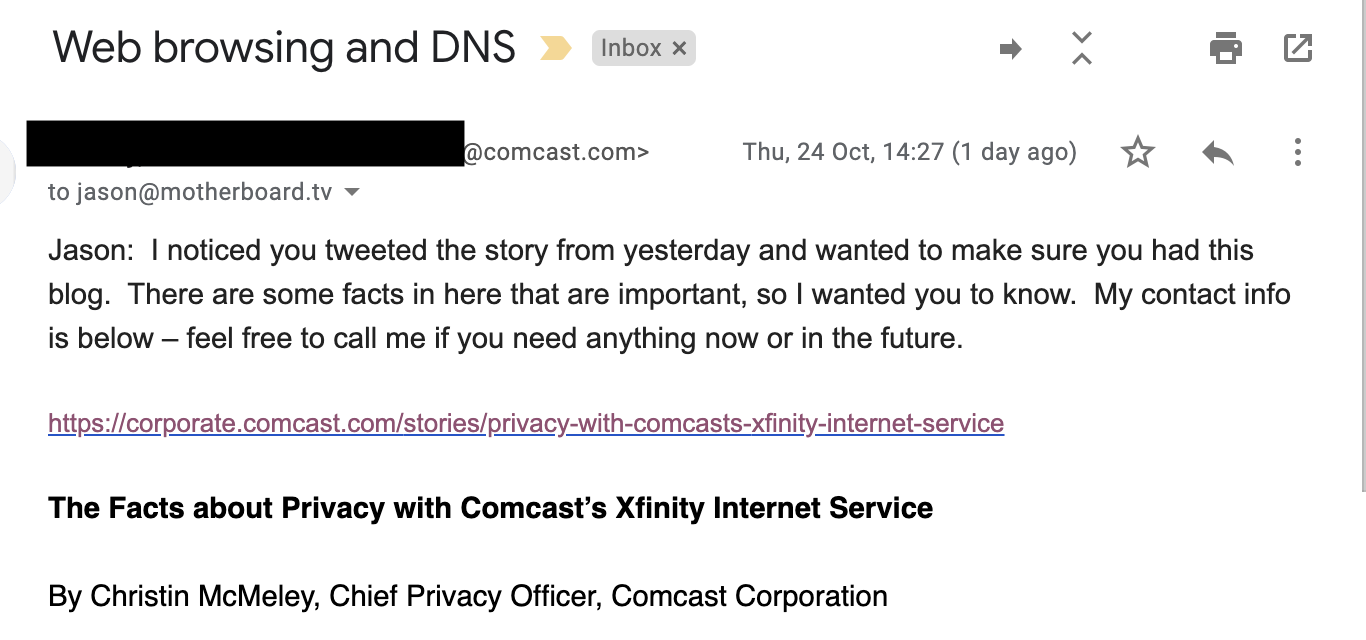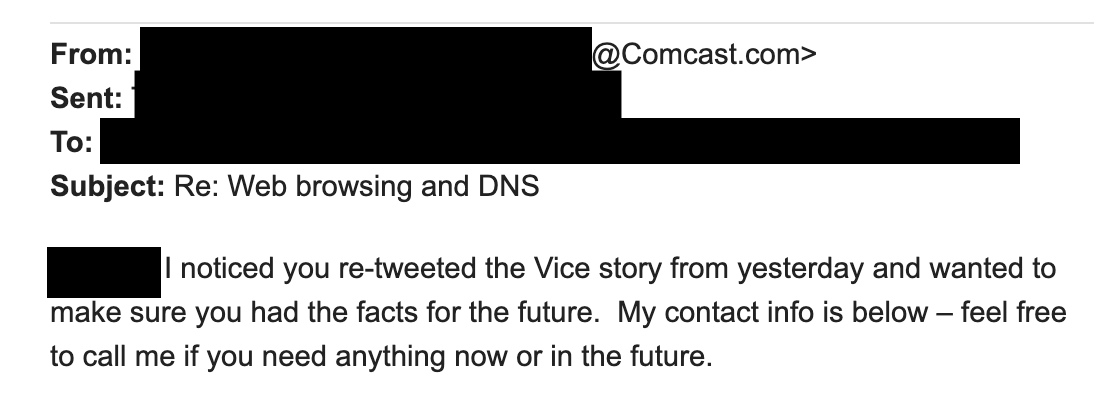Dear Comcast, I Noticed Your Email About My Tweet and Wanted You to Have This Blog
Credit to Author: Jason Koebler| Date: Fri, 25 Oct 2019 20:48:41 +0000
Dear Comcast, thank you for emailing me and nearly everyone else who tweeted or retweeted the article we wrote about Comcast’s lobbying against a move that would make it harder for your company to see customers’ browsing histories.
Earlier this week, Motherboard wrote an article about the lobbying effort, in which the company asked lawmakers to prevent Google and other web browser companies from encrypting DNS, a web protocol that allows internet service providers like Comcast to determine their customers’ browsing histories.
Comcast responded to our article about lobbying with more PR spin. A spokesperson for the company emailed me and three other Motherboard writers with a link to a blog post that doesn’t deny any part of our article but attempts to spin the lobbying as innocent: “Jason: I noticed you tweeted the story from yesterday and wanted to make sure you had this blog. There are some facts in here that are important, so I wanted you to know.”
This is relatively normal public relations behavior: Companies often try to spin stories that are perceived as negative as being blown out of proportion or somehow incorrect. They often say in public that the thing they said in private—in this case, the lobbying document—does not mean what it clearly meant.

But Comcast not only emailed reporters at Motherboard, it also emailed reporters at at least three other publications who also tweeted our article, as well as people who merely retweeted our article. I checked with nine people who had tweeted or retweeted a link to our article. Eight of them had gotten emails from Comcast.
In that article, we attached a full copy of the slide deck that Comcast made and also quoted Comcast extensively; the slide deck explains Comcast’s position on the issue at length. Experts speculated that the reason Comcast is lobbying against the plan is that Comcast wants to have the option to track its users.
This is a reasonable conclusion. In 2017, ISPs and the advertising industry lobbied Congress to kill Federal Communication Commission rules that would have prevented ISPs from selling your personal data to advertisers. And in March, the Federal Trade Commission launched an investigation into whether ISPs are selling user browser history and personal information.

Though Comcast insists that “where you go on the internet is your business, not ours,” the company admits that it does sell user information to third parties; it just says that the information does not “identify who you are to anyone.” But the industry’s lobbying history suggests that it does think that user data is valuable, and thus would probably want as much visibility into user behavior as is possible. Google’s move would restrict some of that visibility, and so Comcast is lobbying against the move.
There is a long history of Comcast acting differently behind closed doors than it acts with the public, which is why lobbying documents are notable and should, when possible, be made available to the public. For example, during the net neutrality battle, Comcast said publicly that it would honor net neutrality principles, while lobbying against them behind the scenes. It's also worth mentioning that Comcast was specifically bound by the FCC to honor net neutrality as a condition of merging with NBC, not because it felt as though net neutrality would be the best thing for its consumers. And on the same day that the FCC announced it was repealing net neutrality rules, the company quietly deleted its public page committing itself to net neutrality principles.
This is all to say, thank you for sending us the facts, Comcast. I noticed your email and wanted to make sure you had this blog.
This article originally appeared on VICE US.